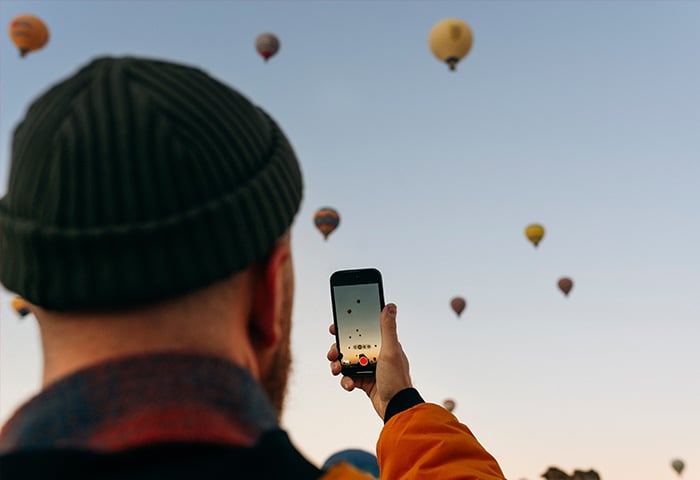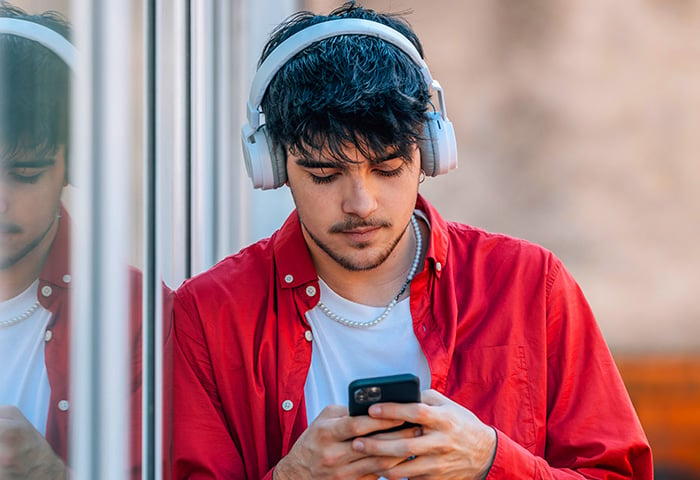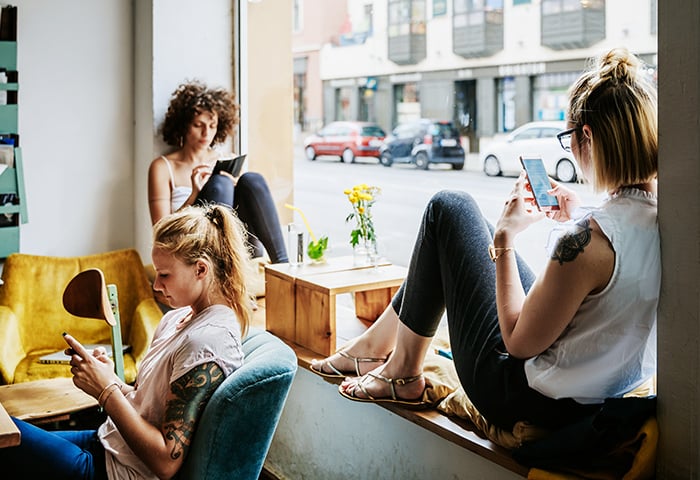Yep, it’s happening to everyone, everywhere: we’re all quarantined in our homes, trying to avoid getting sick and equally as important, trying to avoid going insane. It’s not easy; you could find yourself slipping into some unhealthy and dangerous habits that, while perhaps not as harmful to your physical health as COVID-19, are damaging to your mental health. In fact, a report by the scientific journal The Lancet suggests that stress-inducing factors of quarantines such as fears of infection, frustration, boredom, inadequate supplies, inadequate information, financial loss, and social stigma, could lead to long-lasting mental traumas including post-traumatic stress symptoms, confusion, and anger.
Which is bad.
Fortunately, we have social media to help us stay connected with our friends and family, and to build communities during a time we’d normally be totally divided. Unfortunately, social media can do more harm than good if used improperly, and as history has shown we have a bad habit of doing just that. So to help you wring the most good out of social media, we’ve collected a few quick tips to bear in mind next time you log into your Facebook, Instagram, TikTok, or whatever account.
1. Don’t rely on social media for news
This is so important. If we were allowed to all-cap titles, we would do it here.
Staying in-the-know is important, mostly because experts are posting updates, changes in the law, and life-saving tips daily. But just as important is knowing where to get your updates, and sadly, social media just ain’t it. There’s too much hearsay, too much hysteria, and too much misinformation floating around, even as platforms crack down on the usual suspects behind such malarky.
So whatever you do on Facebook, Twitter, or Instagram, make sure it’s not where you get your daily news. Instead, we recommend the following sources:
More generally, try to limit your exposure to the news outside a single, designated part of your day — maybe right before breakfast, or with an afternoon cup of tea — to avoid feeling overwhelmed or hopeless, and to help you set up a routine. And if you stick with trustworthy sites, you can be sure you won’t ever have to worry about being misinformed.
2. Curate what you see
It’s a well-known fact that too much social media is normally bad for you. But these aren’t normal times, and the pandemic is even helping mitigate the usual risks social media presents — it’s hard to be jealous of your friend’s latest vacation if nobody is taking any. And FOMO is taking a break since the only thing you’re missing out on is a debilitating infection.
But even if you’re spared the vacation photos, that doesn’t mean social media can’t be a risk to your mental health. So now would be a great time to start managing who you’re following and what content you’re seeing. If you see anyone, or any groups, making radical claims about current events or developments — even if you believe them — unfollow them. You can double-check the facts if you want (be careful with that, though) but even if they’re right, that doesn’t mean they’ll be right next time. If you see someone making posts that are upsetting? Unfollow them. Try to turn your social media space into someplace where you’re sure you’ll only see content you’ll enjoy seeing.
So, for example, you could join groups that post wholesome content, or groups that give you something to do while you whittle away the hours. And obviously, you should only accept friend requests from people you know to avoid clustering your feed with unknown elements.
Oh, and of course, if someone is telling people to stop overreacting and join them for a face-licking and pepper-snorting party, go ahead and block them too.
Doing this won’t just help you during the current crisis: it could help you enjoy your social media more after the crisis, too. So it’s worth your time.
3.Connect with the real world, too
Like every rabbit hole, there’s a lot of depth to most social media feeds, but unlike the one Alice fell into, rarely will these lead to a wonderland: generally they lead to a lot of wasted time and misinformation… or worse.
While spending more time on social media is understandable these days, that doesn’t mean it’s any healthier to indulge too much into it, especially if it comes at the cost of your real-life connections or physical health. If you’re quarantine buddies with anyone, make sure you set time aside to talk with them, too. This is especially true for young children, who will no doubt be missing their friends and will be using social media to stay in touch with them. It’s important they’re allowed to do that, but equally important they don’t go overboard… or start trying to make new friends with strangers they encounter online.
And if you’re not quarantine buddies with anyone, don’t just use tweets and instant messages to talk to people: call them. With audio. Both so you can get away from the screen (a phone chat while you sweep the floor is a great way to pass the time) and so you can hear another person’s voice. It’s good for what ails you.
4. Look out for scams
Everyone is stuck indoors these days, and that includes your not-so-friendly neighborhood scammers and phishers. With nothing better to do, and a lot of people desperate for human contact (or money, considering the state of the economy), it’s something of a golden age for scammers — which is why you need to stay increasingly diligent not to fall victim to any.
Fortunately, just because there are more scammers doesn’t mean their tactics are any different:
-
If it seems too good to be true, it almost certainly is.
-
If a friend or co-worker makes an odd request, call them to make sure it’s really them.
-
Sign up to social media accounts with a fake email so your real email can remain hidden.
-
Don’t download files you don’t recognize or seem weird.
-
If you ‘won’ a prize in a competition you never even entered… you didn’t.
-
Check, double-check, and triple-check before you sign up for any “work from home” opportunities that you’re going to do a legitimate job.
Use a strong, unique password for all your accounts.
5. Be cautious… but adventurous
Meeting someone new over Instagram isn’t quite as exciting as meeting someone at a board game club or trivia night at the bar… but both to expand your horizons and your social circle, consider being a little more bold than you might normally be on social media. To a limit.
Friending someone who posted a funny image on a Facebook group? Could lead to a new real-life friend.
Offering to play a few more rounds of a game with strangers? Could lead to some new gaming buddies to whittle away those long evenings with.
Trying to meet up with someone on Tinder? Definitely a bad idea.
Exercise common sense, and always remember that people online might not be who they seem to be, but a little bit of optimism and an open mind could mean you leave quarantine with more friends than you entered it with. And then you can all enjoy a face-licking and pepper-snorting party together.
You’ve earned it.















